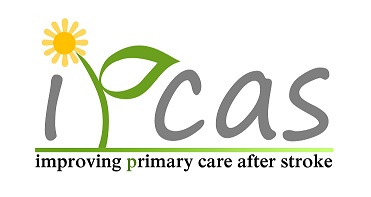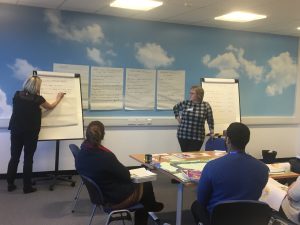Main Purpose
Facilitators need to facilitate regular groups for people with stroke, their family members, friends or carers, as part of the MLAS programme in a safe and secure environment which is de-medicalised, offering appropriate support that is based on client needs.
Duties and Key Responsibilities
- To attend 3 days of specialised facilitator training as well as refresher courses and mentoring sessions.
- To facilitate regular group sessions as outlined in the MLAS programme curriculum.
- Liaising with programme staff to enable safe, secure and timely management of the programme.
- To ensure that each session is appropriately organised with any necessary arrangements.
- To communicate with other facilitators and MLAS staff to enable co-ordination.
- To set-up the room and ensure that the group meeting place remains safe and secure environment.
- Good time management so that group sessions work within their time allocation.
- To assist the group members to understand the purpose and benefit of the group, and its ground rules.
- To ensure that group members feel at ease, and that all are able to participate equally, as they wish.
- Support the group to explore their experiences and share strategies for self-management.
- Support individuals to identify personalised goals relating to health-related behaviours.
- To seek and record feedback at every session to understand whether needs are being met
- Support programme development.
- Undertake regular reflection and development to support quality and consistent programme delivery.
Who Can be a Facilitator?
Facilitators will either be health care professionals (e.g. Practice Nurses) or lay people (e.g. people from the voluntary sector such as the Stroke Association).
You do not need to be clinically trained to become a facilitator. If you would like to become a facilitator you will be asked to attend 3 days of specialist training. You may also be asked to ensure that your core skills such as Manual Handling and Basic Life Support are up-to-date if you do not already have these.
Want to Find Out More?
If you would like to find out more about the MLAS programme or you are interested in becoming an MLAS facilitator please contact us at ipcas@medschl.cam.ac.uk
Or click on the links below for further information:
Facilitator Further Information
Current Facilitators
Cambridgeshire
Ryc Aquino – Research Associate at the University of Cambridge
Emily Blatchford – MLAS Administrator at the University of Cambridge
Lizzie Kreit – Study Coordinator at the University of Cambridge
Vicky Theobald – Research Administrator at the University of Cambridge
Helen Long – Support Worker at the Stroke Association
Anita Marsden – Volunteer at the Stroke Association
Angela Arnold– Volunteer at the Stroke Association
Leicestershire / Loughborough
Jayna Mistry – Study Coordinator at the University of Leicester
Denise Orwin – Support Worker at the Stroke Association
Paolo Pascale – Facilitator
Dolores Watters – Experienced Facilitator
Carol Newbold – Experienced Facilitator
Hertfordshire
Michelle Constable – Health Psychologist
Sue Hazleton – PhD Student
Norfolk / Suffolk
Donna Clements – Clinical Research Nurse
Philippa Monteith – Speech and Language Therapist
Sarah Neall – Support Worker at the Stroke Association
Gisela Perezolivas – Norfolk and Suffolk Primary and Community Care Research Office
Carey Soutar – Facilitator
Vicki Owen – Masters Student studying Health Psychology
*All of the above may vary on locations and can be subject to change

